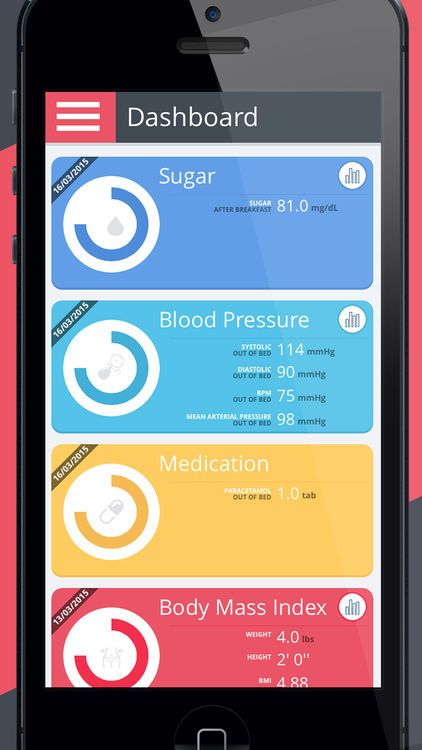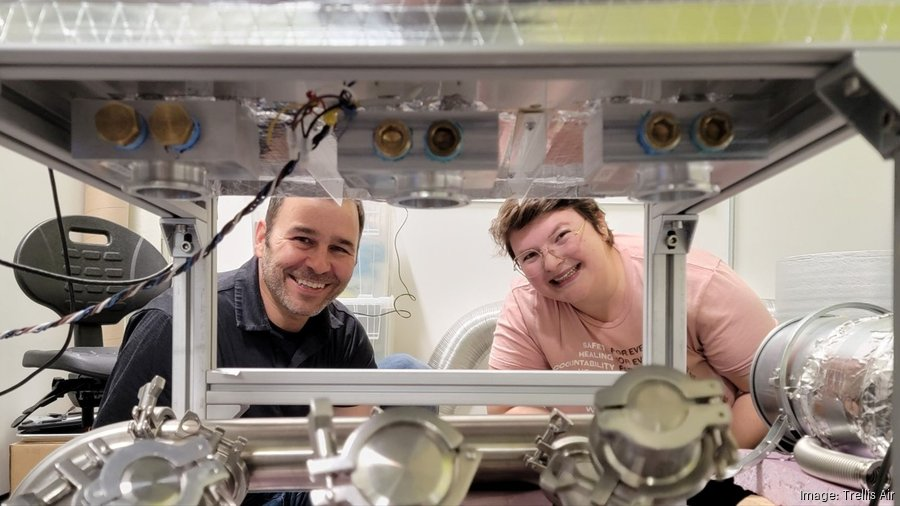Personal healthcare apps have revolutionized the way individuals take charge of their health, offering a seamless integration of technology into daily well-being practices. These innovative mobile health apps are specifically designed to provide personalized support, particularly for patients navigating challenging conditions such as cancer or chronic illness. With features that include real-time tracking and recommendations based on user behavior, these applications have become indispensable tools in modern healthcare technology. By leveraging advanced concepts like reinforcement learning in healthcare, these apps continuously adapt to users’ changing needs, ensuring tailored intervention when it matters most. As more people turn to these digital solutions, the impact of personal healthcare applications on patient adherence and quality of life continues to grow, marking a significant shift in health management strategies.
The emergence of digital health solutions, often referred to as mobile wellness tools or health management applications, is transforming personal health management. These systems, developed with cutting-edge technology, provide users with the capability to effectively monitor and manage their health outcomes from the comfort of their smartphones. Adaptive interventions through smart algorithms ensure that support is not only timely but also tailored specifically to individual’s circumstances, whether they are dealing with recovery from cancer treatment or seeking assistance in behavioral health modifications. This evolution in healthcare technology underscores the growing trend toward personalized medicine, fostering better patient engagement and adherence through intuitive and responsive support systems. As healthcare continues to pivot toward technology-driven solutions, these apps represent a vital resource in empowering patients and enhancing their overall health journey.
The Future of Personal Healthcare Apps
Personal healthcare apps are revolutionizing the way patients manage their health, offering features that provide real-time support and tailored interventions. These mobile health apps utilize advanced technologies like artificial intelligence and machine learning to create a unique experience for each user, adapting to their needs and preferences as they evolve. Patients now have virtual coaches in their pockets, ready to guide them through challenges related to medication adherence, lifestyle changes, and overall health management.
As developments continue in the field of adaptive interventions, personal healthcare apps are becoming increasingly sophisticated. By leveraging reinforcement learning algorithms, these applications can now learn from user behavior, improving the delivery of motivational prompts and reminders. This technology goes beyond standard health tracking, offering responsive solutions that adjust based on the user’s context and prior interactions, ultimately leading to better adherence rates and management of chronic conditions.
Reinforcement Learning in Healthcare Technology
Reinforcement learning is a cutting-edge technology that holds immense potential for the healthcare sector. By applying principles of machine learning, healthcare applications can optimize their strategies based on real-time user feedback. This means that rather than a static set of instructions, patients receive guidance that evolves over time, promoting behavior that leads to better health outcomes. Reinforcement learning enables healthcare apps to assess the effectiveness of interventions, paving the way for personalized experiences catered to individual user needs.
The adaptation of reinforcement learning in healthcare technology marks a significant shift from traditional methods. For instance, an app designed for cancer support can dynamically change its approach based on user interactions, providing timely reminders and motivational messages when they are most likely to be effective. Such customization plays a crucial role in assisting patients through their recovery journey, showcasing how technology can effectively bridge the gap between clinical guidelines and personal treatment adherence.
Mobile Health Apps: A Game Changer for Patients
Mobile health apps have emerged as a game changer in patient care, offering a wealth of benefits that extend beyond basic health tracking. These applications empower patients by providing immediate access to health resources, educational materials, and community support networks. With features tailored to specific conditions, such as cancer or substance use, users can leverage mobile health apps to connect with others facing similar challenges, fostering a sense of belonging and motivation as they navigate complex health journeys.
Moreover, mobile health apps are designed with usability in mind, ensuring that even those who may not be tech-savvy can easily access and benefit from the features they offer. By integrating reminders, educational content, and consumer health data seamlessly, these apps not only promote self-management but also enhance communication between patients and their healthcare providers. As more patients adopt these digital solutions, the landscape of healthcare is shifting towards a more collaborative approach to health management.
The Role of Adaptive Intervention in Cancer Support
Adaptive intervention strategies have gained significant traction in cancer support applications, allowing for nuanced health management that evolves with the patient’s needs. As patients undergo treatment, their symptoms and side effects can vary dramatically, calling for a flexible approach to support. These apps use data-driven algorithms to deliver personalized advice tailored to specific moments in a patient’s recovery, ensuring they receive the right support when it is most crucial.
For instance, a cancer patient utilizing an adaptive intervention app may experience changes in mood or physical capability. In response, the app can adjust its messaging and support structure accordingly, whether it means modifying medication reminders or providing encouragement for social interactions. This level of responsiveness is critical in maintaining adherence to treatment plans and fostering resilience during challenging times, demonstrating the powerful impact of technology in patient care.
Integrating Cannabis Use into Healthcare Applications
As the legalization of cannabis becomes more widespread, healthcare applications are beginning to integrate features aimed at assisting users in managing their cannabis consumption more effectively. These cannabis support apps can provide tailored advice based on individual health profiles, promoting responsible use and supporting users in making informed decisions. By utilizing reinforcement learning, these apps continuously adapt to user feedback, enhancing their efficacy and fostering a safer approach to cannabis use.
Cannabis use can harbor both potential benefits and risks, especially for patients undergoing medical treatments. By incorporating educational resources about cannabis efficacy and safety, as well as live tracking features, these healthcare apps serve as vital tools for users. They help individuals minimize negative impacts while maximizing therapeutic benefits, thereby integrating cannabis into a broader, personalized approach to healthcare.
Breaking Down User Barriers with Technology
One of the most significant challenges in healthcare management is overcoming barriers to user engagement. Many individuals struggle to adhere to treatment protocols due to a lack of motivation, knowledge, or support. Personal healthcare apps, leveraging cutting-edge technology, play a vital role in breaking down these barriers, offering features that engage users and encourage active participation in their health management.
By providing interactive features such as games, social networking opportunities, and instant feedback, healthcare apps can transform the patient experience. The use of positive reinforcement and rewards systems helps motivate users to stick to their treatment plans, gradually building healthier habits over time. This innovative approach not only empowers patients but also fosters a sense of ownership over their care, leading to improved outcomes.
Enhancing Communication Through Digital Platforms
Effective communication between patients and healthcare providers is essential for successful treatment outcomes. However, traditional methods often fall short, leaving patients feeling unsupported during critical times. Digital platforms, particularly personal healthcare apps, are bridging this gap by enabling more accessible and streamlined communication channels, enhancing the patient experience significantly.
Through these apps, patients can easily reach out to their healthcare teams for support, ask questions, and receive timely feedback on treatment plans. Instant messaging and video calls integrated within these platforms also facilitate discussions, ensuring that patients feel guided and supported throughout their healthcare journeys. This enhanced communication fosters a collaborative environment, ultimately leading to better adherence to treatment protocols.
Data-Driven Insights for Better Health Management
The wealth of data generated by healthcare apps presents unprecedented opportunities for improving health management strategies. By employing sophisticated analytics, these personal healthcare apps can track user behavior, medication adherence, and overall progress over time. This data not only informs the patient but also provides invaluable insights for healthcare providers, helping to refine treatment approaches and enhance patient support.
Analytics offer a dual benefit: they empower patients to monitor their own health status, while also supplying healthcare professionals with the necessary information to make informed decisions. Understanding trends and patterns in patient behavior allows for more precise interventions and a tailored approach to care. This shift towards data-driven health management is pivotal in enhancing patient outcomes and minimizing the risks associated with chronic conditions.
The Evolution of Mobile Health Technology
The evolution of mobile health technology reflects a significant milestone in healthcare delivery. From simple health tracking applications to complex platforms utilizing artificial intelligence, technology has reshaped how individuals interact with their health information. The development of mobile health apps has made it easier than ever for patients to manage chronic conditions, access resources, and engage in their care.
This transformation is characterized by an increasing focus on patient-centered design, ensuring that applications are intuitive, accessible, and effective in promoting health behavior changes. As developers integrate sophisticated algorithms and machine learning into app functionalities, the effectiveness of mobile health technology continues to improve, paving the way for a new era in healthcare.
Frequently Asked Questions
What are personal healthcare apps and how do they assist users?
Personal healthcare apps, also known as mobile health apps, are digital tools designed to help individuals manage their health and wellness. They provide personalized support by leveraging algorithms to customize user experiences, including medication reminders, health tracking, and behavioral interventions tailored to individual needs.
How do mobile health apps improve medication adherence for cancer patients?
Mobile health apps enhance medication adherence for cancer patients by utilizing reinforcement learning algorithms that adapt to the user’s behavior and preferences. By delivering timely reminders and motivational prompts based on real-time data, these apps ensure that patients follow their medication regimens more effectively.
What role does reinforcement learning in healthcare play in personal healthcare apps?
Reinforcement learning in healthcare aids personal healthcare apps by enabling them to learn from user interactions. This technology allows apps to optimize their engagement strategies, ensuring that users receive personalized, relevant reminders and support based on past effectiveness, thus improving health outcomes.
Can personal healthcare apps provide support beyond medication reminders?
Yes, personal healthcare apps can offer a variety of support options beyond medication reminders, including goal tracking, behavioral interventions, and mental health resources. For example, some apps employ just-in-time adaptive interventions that adjust their support based on the user’s immediate circumstances and needs.
Are there specific personal healthcare apps for cancer patients and their caregivers?
Yes, there are specialized personal healthcare apps developed for cancer patients and their caregivers. These apps incorporate features like managing medication schedules, tracking symptoms, and facilitating communication between patients and their caregivers, enhancing the overall support system during treatment.
What is an adaptive intervention in the context of personal healthcare apps?
An adaptive intervention in personal healthcare apps refers to a tailored support approach that adjusts in real-time based on user feedback and circumstances. This method ensures that users receive the most effective interventions at critical moments to promote adherence and positive health behaviors.
How can mobile health apps support mental health in patients undergoing treatment?
Mobile health apps can support mental health in patients undergoing treatment by integrating features such as mindfulness exercises, mood tracking, and access to support networks. These resources help patients cope with the psychological challenges associated with their health conditions.
What is the importance of user data in enhancing personal healthcare apps?
User data is crucial for enhancing personal healthcare apps as it allows developers to understand usage patterns and preferences. This information enables algorithms to refine their responses and improve user engagement, making the interventions more effective and personalized.
How do mobile health apps foster collaboration between patients and caregivers?
Mobile health apps foster collaboration between patients and caregivers by providing shared platforms for tracking health activities, medication adherence, and communication. By facilitating joint participation in health management, these apps enhance the support network for individuals undergoing treatment.
Can personal healthcare apps integrate with other healthcare technologies?
Yes, personal healthcare apps can integrate with various healthcare technologies, including wearable devices and electronic health records. This integration allows for comprehensive health monitoring and personalized insights, ultimately improving patient care and engagement.
| Key Points | Details |
|---|---|
| Development of Health Apps | Focused on providing real-time support for cancer patients and users of cannabis. |
| Innovative Algorithms | Utilizes reinforcement learning algorithms for tailored user experiences. |
| Adaptive Interventions | Apps are designed to provide support at critical moments based on user needs. |
| Collaboration | Partnerships with software engineers and healthcare professionals for app development. |
| Trial Initiatives | Preliminary clinical trials to assess effectiveness, like the ADAPTS HCT trial. |
| User-Centered Features | Incorporates fun elements like games to facilitate motivation and support. |
| Future of Healthcare | Aim to create affordable digital alternatives to personal coaching. |
Summary
Personal healthcare apps represent a revolutionary step in health management, especially for chronic conditions like cancer. By employing sophisticated algorithms, these apps provide tailored support that adapts to individual user needs, enhancing medication adherence and overall wellness. As the development of such innovative applications progresses, they hold the potential to bridge gaps in personalized healthcare, offering efficient, affordable solutions for those who may not have access to traditional coaching methods.



